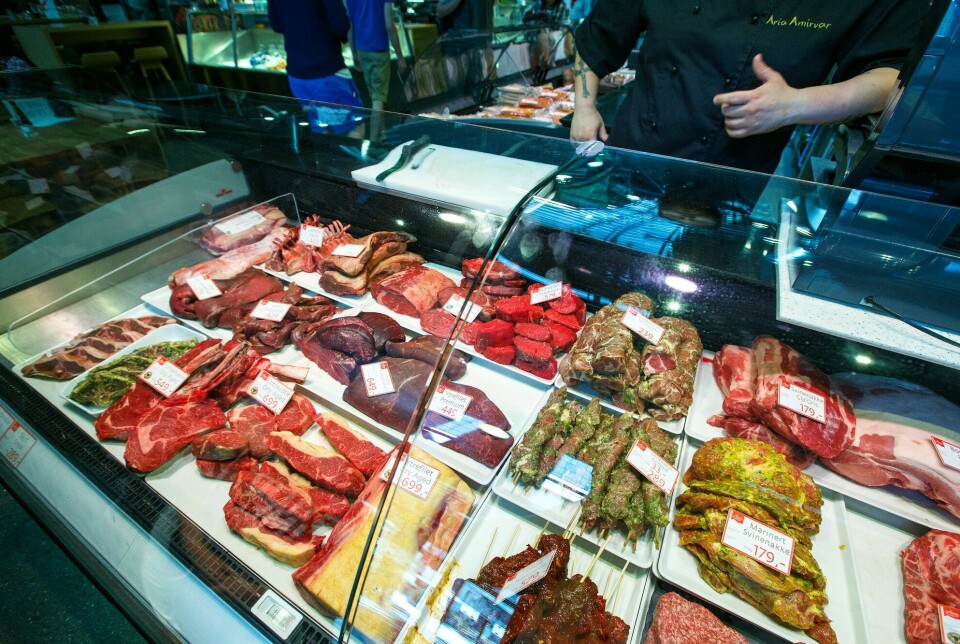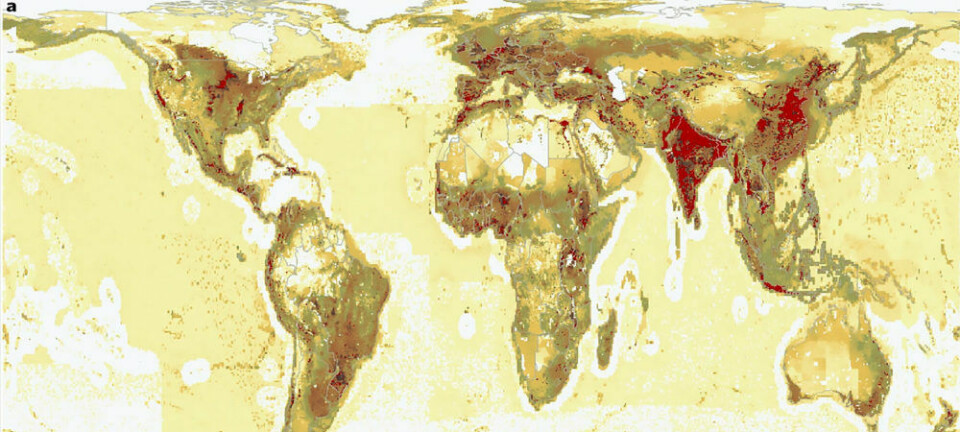
Do we care that red meat is bad for the climate, or do we just eat what we want?
Norwegians are not going to cut their meat consumption enough even if they believe the climate impact is important, says a researcher behind a new Norwegian study.
Eating red meat is strongly supported by social norms in Norway, the researchers write in their study. Norms are written and unwritten rules that influence what we do.
But have Norwegians changed the amount of meat they eat because they have heard that red meat is bad for the climate?
It doesn't look like it, the researchers conclude. They have found that climate norms have little effect on the consumption of red meat in Norway. Norwegians became even less concerned with this issue during the Covid-19 pandemic. The study was published in the journal Ecological Economics.
Does not happen by itself
Eating less meat is recommended as a climate measure in Norway in the report Climate Cure 2030 (link in Norwegian). By 2030, Norwegians could cut 2.9 million tonnes of CO2 equivalents if people eat less red meat and more plant-based food and fish, according to the report.
But these habits are not going to change on their own.
“If politicians want Norwegians to eat less red meat, measures are necessary,” researcher Marianne Aasen tells sciencenorway.no.
She works at the CICERO Centre for International Climate Research, which has led the study.
“Things will not change sufficiently just because people believe the climate impact is important, even if we see hints of such an effect,” she says.
Asked what friends and family think
In the new study, researchers investigated how social and personal norms about red meat and climate-friendly eating have changed.
The researchers also looked at whether these norms are influenced by attention to climate change and related social norms.
Surveys conducted using a representative sample of the Norwegian population in 2019, 2020, and 2021 form the basis for the study.
- Participants were asked how important they think it is that the food they eat has a low climate footprint.
- They also answered whether most people they know eat red meat and whether their friends and family expect them to do so. This indicates social norms that support meat consumption.
- The researchers also asked whether the participants felt they had a duty to reduce their own greenhouse gas emissions and how often friends and others they knew talked about climate change. This indicates personal and social norms to limit greenhouse gas emissions.
Ate about the same amount of meat as before
There was little change in how much red meat participants reported eating over the three years.
This is in keeping with figures from Animalia indicating that meat consumption has been stable over the past 15 years.
There was also little change in how concerned people were about eating climate-friendly and how they perceived the social norms for eating red meat were.
However, there was a slight decrease in how much responsibility people felt to reduce their emissions.
The amount of attention that people perceived climate change was receiving dropped between 2019 and 2020 – and then jumped back to a higher level in 2021.
This may have to do with the fact that the Covid-19 pandemic was competing for people's attention in 2020, according to the researchers.
Maintained by social norms
The researchers investigated links between norms and the consumption of red meat.
“We find that red meat consumption is largely maintained by social norms that support red meat consumption, but consumption is challenged by society's attention to negative climate effects,” Aasen says.
"Such attention has to some extent led to some adopting norms for a climate-friendly diet and thus reducing their red meat consumption."
However, the researchers found that the climate debate's influence on the consumption of red meat is weak and was further weakened during the Covid-19 pandemic.
Has little influence on consumption
Aasen summarises that the main findings of the study are that the norms and dynamics they examined have been fairly stable from 2019 to 2021.
They also found that although a good number of Norwegians are concerned about the climate effects of meat production, it has little effect on their consumption.
“There are probably many factors behind the fact that we don’t see a particularly large effect of climate perceptions and climate norms on meat consumption,” she says.
Aasen points out that there are strong opinion leaders who promote the consumption of red meat and that we are governed by habits, social and cultural expectations, price, and availability.
Same situation in Denmark
Videnskab.dk was the first to report on the study. Sisse Fagt from the Food Institute in Denmark believes the results from Norway fit well with the situation in Denmark.
“In Denmark, we are also talking more and more about how the production of various foodstuffs impact the climate. But the public debate has a very weak effect on our actual consumption,” Fagt told Videnskab.dk, an online science news website in Danish.
Kia Ditlevsen, lecturer in food sociology at the University of Copenhagen, tells Videnskab.dk that one should not overestimate the impact of norms on meat-eating habits.
“In everyday life, food consumption is a routine. In general, we don't think much about what we put in our shopping cart. It's about price, it's about what we're used to, what we like, and what our children or partners like,” Ditlevsen says.
A tipping point
John Thøgersen from Aarhus University also participated in the study. He told Videnskab.dk about what behavioural research calls a social tipping point.
When a certain percentage of people start to behave in a different way, it is perceived as generally accepted, and the behaviour spreads faster than before, according to Videnskab.dk.
There is still a long way to go before we will see a significant change in the consumption of red meat, says Thøgersen.
Reference:
Aasen et al. The role of norm dynamics for climate relevant behavior: A 2019–2021 panel study of red meat consumption, Ecological Economics, vol. 218, 2024. DOI: 10.1016/j.ecolecon.2023.108091
———
Translated by Nancy Bazilchuk
Read the Norwegian version of this article on forskning.no






































